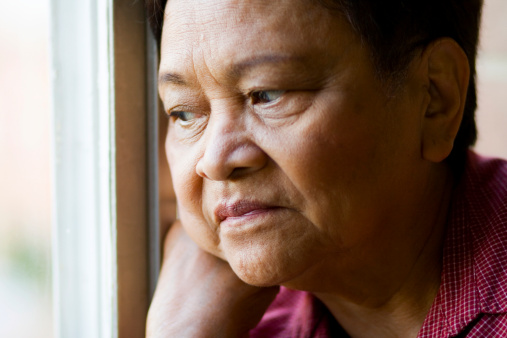
Women with post-traumatic stress disorder (PTSD) gain weight more rapidly and are more likely to be overweight or obese than women without the disorder, according to a new study by researchers at the Columbia University Mailman School of Public Health and the Harvard School of Public Health. The researchers say the study is the first to look at the link between PTSD and obesity over time.
According to the study authors, one in nine women will have PTSD some time over the course of their lifetime—twice as often as men. Women are also more likely to experience extreme traumatic events like rape that carry a high risk for PTSD.
“PTSD is not just a mental health issue. Along with cardiovascular disease and diabetes, we can now add obesity to the list of known health risks of PTSD,” says Karestan Koenen, Ph.D., an associate professor of epidemiology at the Mailman School and senior author of the new study.
The researchers say that while studies have shown that women with PTSD have high rates of obesity, it has been unclear whether PTSD was actually driving the weight gain. To better understand the link, the researchers analyzed data collected from 50,504 women, aged 22-44 years, taking part in the Nurses’ Health Study II between 1989 and 2009. Study participants were asked about the worst trauma they experienced and if they had related post-traumatic stress symptoms, such as re-experiencing the traumatic event, feeling under threat, social avoidance, and numbness.
The researchers found that normal-weight women who developed PTSD during the study period had 36 percent increased odds of becoming overweight or obese compared with women who experienced trauma but had no symptoms of PTSD. Higher risk was seen even in women with lower-level PTSD symptoms and after adjusting for depression which is itself a major risk factor for obesity.
“The good news from the study is that it appears that when PTSD symptoms abate risk of becoming overweight or obese is also significantly reduced,” said Laura D. Kubzansky, Ph.D., Professor of Social and Behavioral Sciences at the Harvard School of Public Health and a study author. But Kubzanksy added that despite the growing evidence of potential far-reaching problems associated with PTSD, it’s estimated that only half of women in the United States with the disorder are ever treated. “Hopefully, wider recognition that PTSD can also influence physical health will improve this statistic, leading to better screening and treatments, including those to prevent obesity,” says Kubzansky.
The researchers are not sure of exactly how PTSD leads to weight gain but say scientists have put forward several theories including:
- PTSD may lead to disturbances in stress hormones which regulate body processes, including metabolism.
- Women may adopt unhealthy eating patterns while experiencing PTSD in order to cope with stress.
- Ongoing research is looking at whether PTSD increases women’s preference for processed foods and decreases the likelihood that they will exercise.
The Columbia/Harvard study was published in JAMA Psychiatry and funded in part by grants from the National Institute of Mental Health.





